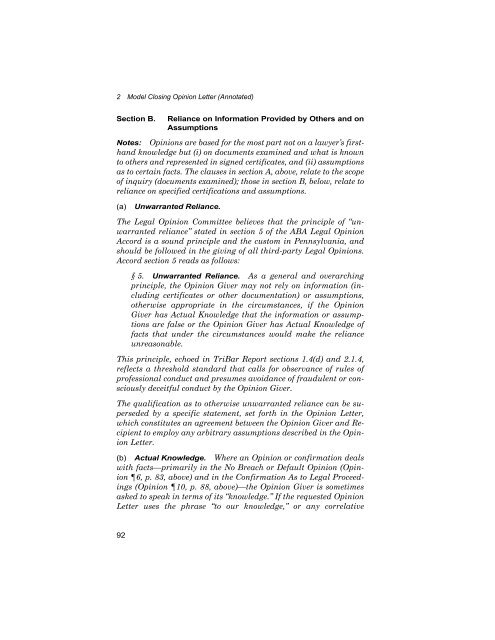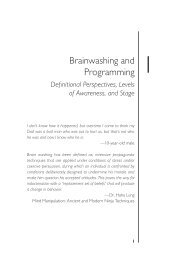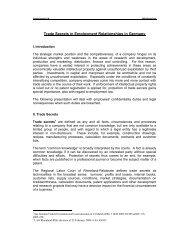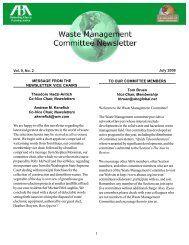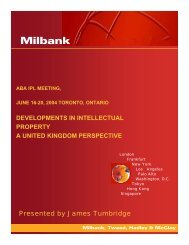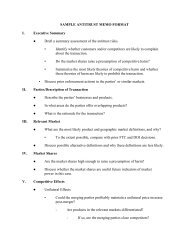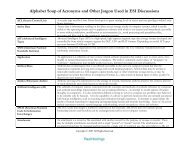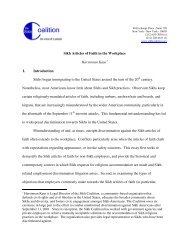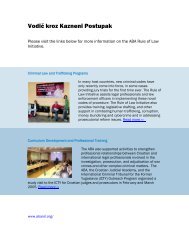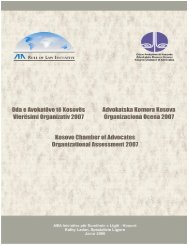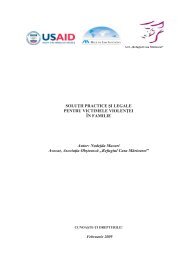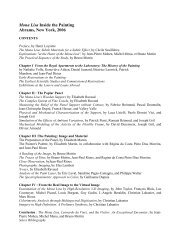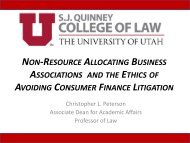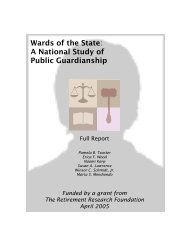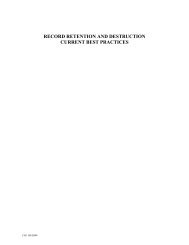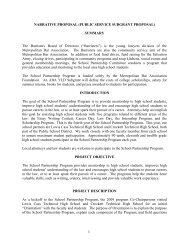Model Closing Opinion Letter (Annotated) - American Bar Association
Model Closing Opinion Letter (Annotated) - American Bar Association
Model Closing Opinion Letter (Annotated) - American Bar Association
Create successful ePaper yourself
Turn your PDF publications into a flip-book with our unique Google optimized e-Paper software.
2 <strong>Model</strong> <strong>Closing</strong> <strong>Opinion</strong> <strong>Letter</strong> (<strong>Annotated</strong>)<br />
Section B. Reliance on Information Provided by Others and on<br />
Assumptions<br />
Notes: <strong>Opinion</strong>s are based for the most part not on a lawyer’s firsthand<br />
knowledge but (i) on documents examined and what is known<br />
to others and represented in signed certificates, and (ii) assumptions<br />
as to certain facts. The clauses in section A, above, relate to the scope<br />
of inquiry (documents examined); those in section B, below, relate to<br />
reliance on specified certifications and assumptions.<br />
(a) Unwarranted Reliance.<br />
The Legal <strong>Opinion</strong> Committee believes that the principle of “unwarranted<br />
reliance” stated in section 5 of the ABA Legal <strong>Opinion</strong><br />
Accord is a sound principle and the custom in Pennsylvania, and<br />
should be followed in the giving of all third-party Legal <strong>Opinion</strong>s.<br />
Accord section 5 reads as follows:<br />
92<br />
§ 5. Unwarranted Reliance. As a general and overarching<br />
principle, the <strong>Opinion</strong> Giver may not rely on information (including<br />
certificates or other documentation) or assumptions,<br />
otherwise appropriate in the circumstances, if the <strong>Opinion</strong><br />
Giver has Actual Knowledge that the information or assumptions<br />
are false or the <strong>Opinion</strong> Giver has Actual Knowledge of<br />
facts that under the circumstances would make the reliance<br />
unreasonable.<br />
This principle, echoed in Tri<strong>Bar</strong> Report sections 1.4(d) and 2.1.4,<br />
reflects a threshold standard that calls for observance of rules of<br />
professional conduct and presumes avoidance of fraudulent or consciously<br />
deceitful conduct by the <strong>Opinion</strong> Giver.<br />
The qualification as to otherwise unwarranted reliance can be superseded<br />
by a specific statement, set forth in the <strong>Opinion</strong> <strong>Letter</strong>,<br />
which constitutes an agreement between the <strong>Opinion</strong> Giver and Recipient<br />
to employ any arbitrary assumptions described in the <strong>Opinion</strong><br />
<strong>Letter</strong>.<br />
(b) Actual Knowledge. Where an <strong>Opinion</strong> or confirmation deals<br />
with facts—primarily in the No Breach or Default <strong>Opinion</strong> (<strong>Opinion</strong><br />
6, p. 83, above) and in the Confirmation As to Legal Proceedings<br />
(<strong>Opinion</strong> 10, p. 88, above)—the <strong>Opinion</strong> Giver is sometimes<br />
asked to speak in terms of its “knowledge.” If the requested <strong>Opinion</strong><br />
<strong>Letter</strong> uses the phrase “to our knowledge,” or any correlative


